Six years of Donald Trump's federal tax returns released on Friday show the former president paid very little in federal income taxes the first and last year of his presidency, claiming huge losses that helped limit his tax bill, among other revelations.
The returns, long shrouded in secrecy, were released to the public on Friday by the House Ways and Means Committee, the culmination of a battle over their disclosure that went to the Supreme Court.
They confirm a report issued from the Joint Committee on Taxation that Trump claimed large losses before and throughout his presidency that he carried forward to reduce or practically eliminate his tax burden.
READ MORE: Trump criminally engaged in 'multi-part conspiracy', report finds
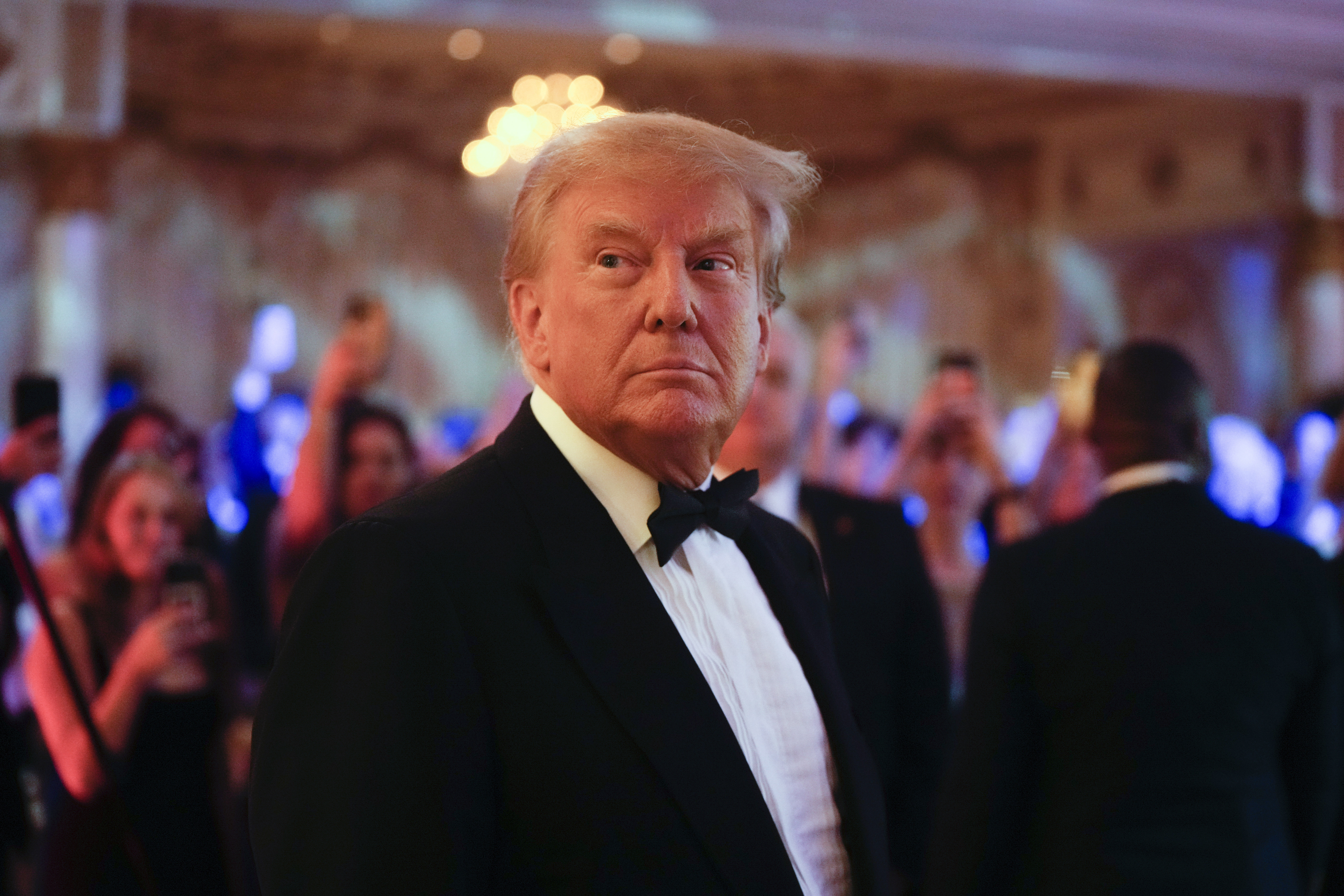
For example, his returns show that he carried forward a $USD105 million ($154 million) loss in 2015 and $USD73 million ($107 million) in 2016.
The thousands of pages of documents from the former president's personal and business federal tax returns, which spanned the years 2015 through 2020, provide a complex web of raw data about Trump's finances, offering up many questions about his wealth and income that could be pursued both by auditors and Trump's political opponents.
Here are key takeaways from the documents reviewed by CNN:
Returns shed light on questionable tax claims
Trump's returns also show the former president made several claims that auditors may question.
The Joint Committee on Taxation, which reviewed the returns, flagged that Trump claimed a large number of questionable items on his tax returns, including eyebrow-raising amounts of interest he claims to have received from loans to his children that the bipartisan committee said could indicate Trump was disguising gifts.
The JCT argued that an auditor should investigate the loan agreements Trump made with his children, including the interest rates.
If the interest Trump claims to have charged his children was not at market rate, for example, it could be considered a gift for tax purposes, requiring him to pay a higher tax rate on the money.
In each year of his presidency, for example, Trump claimed he received exactly $USD18,000 ($26,000) in interest on a loan he said he gave his daughter Ivanka Trump and $USD8,715 ($12,786) in interest from his son Donald Trump, Jr. In 2017 to 2019, Trump said he received exactly $USD24,000 ($35,211) from his son Eric Trump, and Eric paid him $USD19,605 ($28,763) in interest in 2020.
That raises the question of whether "the loans were bona fide arm's length transactions, or whether the transfers were disguised gifts that could trigger gift tax and a disallowance of interest deductions by the related borrowers," the JCT said in its report.
READ MORE: Adelaide man hospitalised after freak accident in Bali
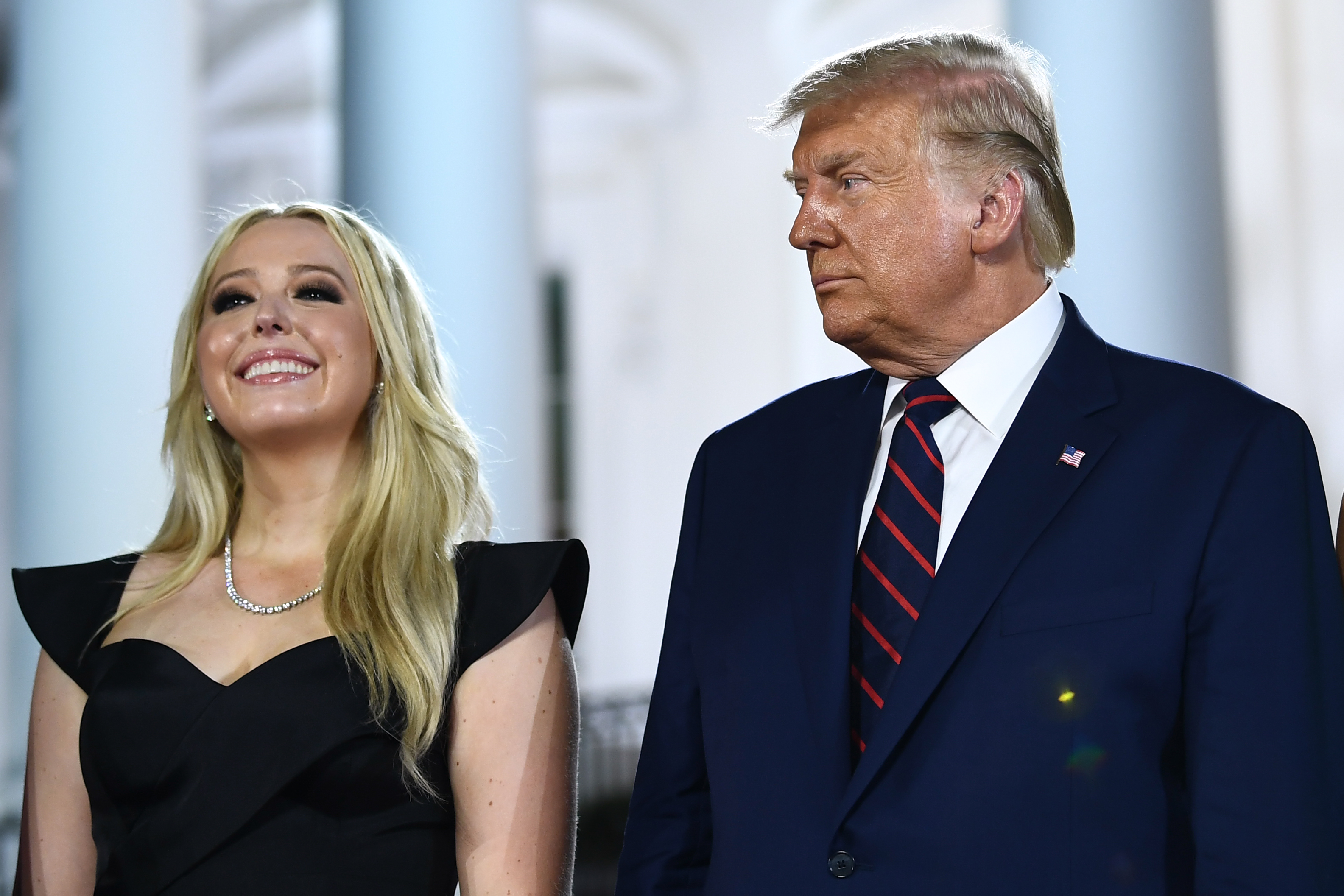
"It's unusual to have interest in round numbers, very rare," said Martin Sheil, former supervisory special agent for IRS' Criminal Investigation unit.
"An auditor would want to see payments, loan agreements and interest rates."
There are also questions about Trump's returns listing an identical amount of company expenses and profits.
For example, in 2017, Trump claimed his business DJT Aerospace LLC, which operates Trump's personal helicopter, claimed $USD42,965 ($63,035) in income. It also claimed the exact same amount, $USD42,965 ($63,035), in expenses.
In other words, every single dollar, to the dollar, that the company earned was negated by the company's expenses, such as payroll, fuel and other items.
READ MORE: January 6 panel urges criminal charges against Donald Trump
That left the company with zero income, and nothing to tax.
"Total expenses equaling total income is a statistical impossibility," said Shiel, who added that the figures are not evidence something illegal was done.
"It just doesn't happen."
The JCT in its report raised several similar questions.
For example, it noted IRS auditors were investigating multiple so-called large unusual questionable items on Trump's tax returns for which the regulator wanted Trump to provide supporting evidence to back up his claims.
Release comes after years-long fight
The returns were obtained by the Democratic-run Ways and Means Committee only a few weeks ago after a protracted legal battle that lasted nearly four years.
The committee voted last week to release the tax returns, but their release was delayed to redact sensitive personal information like Social Security numbers.
The release of the tax returns follows a pursuit for the documents that had typically been made public voluntarily by past US presidents.
Trump and his legal team continuously sought to keep his returns secret, arguing that Congress had never wielded its legislative powers to demand a president's tax returns, which Trump said could have far-reaching implications.
"The Democrats should have never done it, the Supreme Court should have never approved it, and it's going to lead to horrible things for so many people," Trump said in a statement following the release.
"The 'Trump' tax returns once again show how proudly successful I have been and how I have been able to use depreciation and various other tax deductions as an incentive for creating thousands of jobs and magnificent structures and enterprises."
Other Republicans also criticized Democrats' efforts in pursuit of the tax returns as political, with Texas Republican Kevin Brady, the committee's top conservative, saying the release would amount to "a dangerous new political weapon that reaches far beyond the former president and overturns decades of privacy protections for average Americans that have existed since the Watergate reform".
During the committee's closed-door meeting last week, Republicans warned that the release of Trump's tax returns by Democrats could prompt retribution once Republicans control the House next year, like going after the taxes of President Joe Biden's son, Hunter Biden.
"I had countless people tell me of things that they were concerned with President Biden's family dealings and how they believed that him and his family is enriched because of his political power.
"And they are begging for oversight and accountability on that," said Republican Jason Smith, a Missouri Republican, according to excerpts the GOP released from the meeting.
"Do we need to go down all that? Is that what you all are wishing to do?"
Returns show he held foreign bank accounts while in office
Trump reported having foreign bank accounts between 2015 and 2020, including a bank account in China between 2015 and 2017, his tax returns show.
Trump was required to report the accounts to the Financial Crimes Enforcement Network (FinCEN).
The filings show that the former president maintained foreign bank accounts in countries such as the United Kingdom, Ireland and China.
READ MORE: Trump's legal team facing contempt charges over Mar-a-Lago delays
The China bank account, which was reported by The New York Times in 2020, was tied to Trump International Hotels Management's business push in the country, Trump Organization lawyer Alan Garten said at the time.
The 2020 disclosure of business dealings in China came as the Trump campaign sought to portray Biden as a "puppet" of China.
Biden's income tax returns and financial disclosures showed no business dealings or income from China.
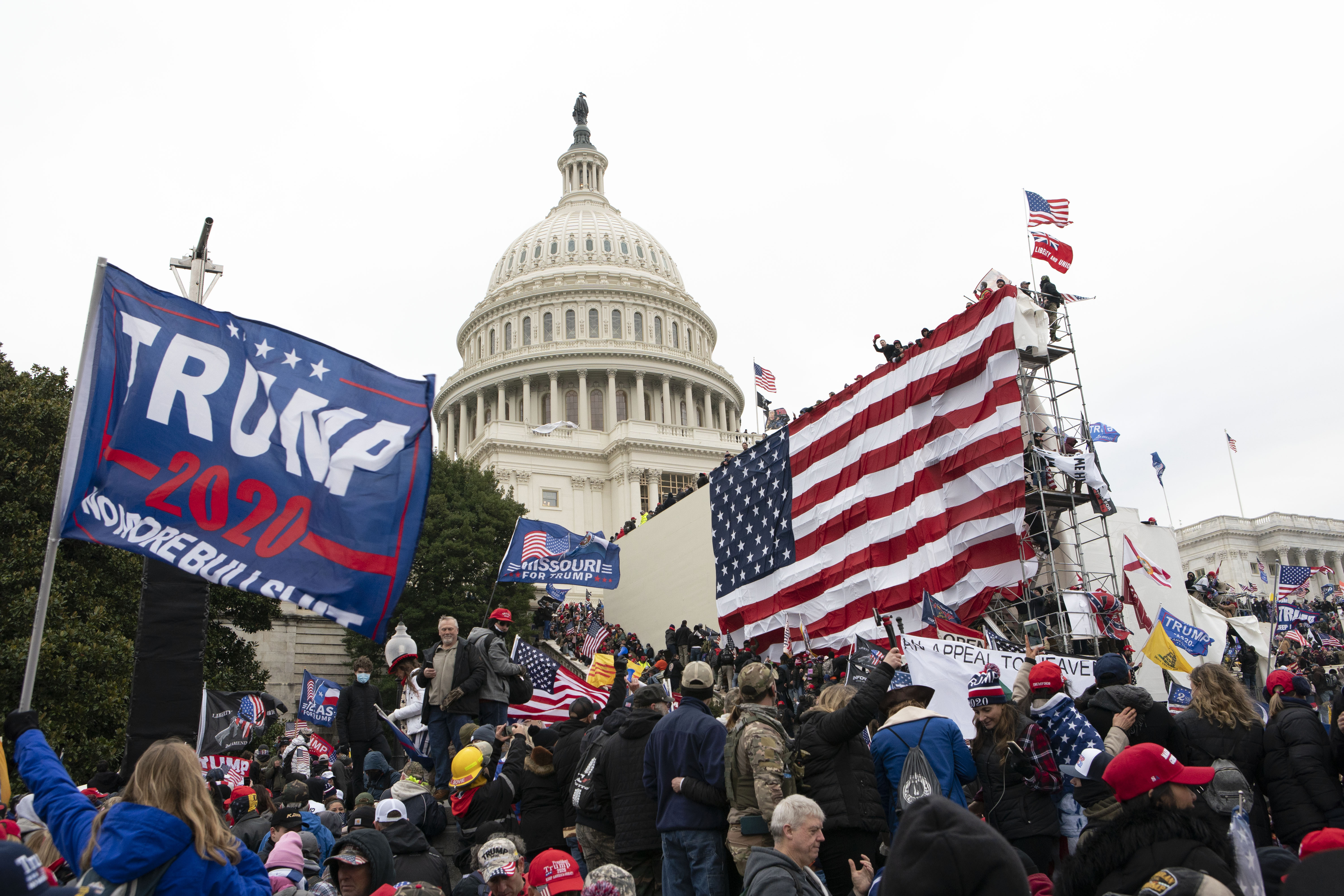
The returns also show that Trump paid more in foreign taxes than in US federal income taxes in 2017, the first year of his presidency.
In 2017, Trump paid just $USD750 ($1100) in US federal income taxes because of large carry-forward losses that he claimed in prior years, negating virtually all of his American tax liability.
Yet Trump paid nearly $USD1 million ($1.47 million) in taxes to foreign countries that year.
The fact that Trump paid foreign taxes isn't in itself surprising, but it shows how Trump's companies and businesses interests span the globe, and how those businesses are subject to local tax laws and regulations.
On his tax return, Trump listed business income, taxes, expenses or other notable financial items in Azerbaijan, Panama, Canada, India, Qatar, South Korea, the United Kingdom, China, the Dominican Republic, United Arab Emirates, the Philippines, Grenada, US territory Puerto Rico, Georgia, Israel, Brazil, St. Maarten, Mexico, Indonesia, Ireland, Turkey, and St. Vincent.
Trump claimed no charitable deductions in 2020
During his presidency, Trump pledged he would donate the entirety of his $USD400,000 ($586,854) salary to charity each year.
He frequently boasted about donating parts of his quarterly paycheck to various government agencies.
"While the press doesn't like writing about it, nor do I need them to, I donate my yearly Presidential salary of $USD400,000 ($586,854) to different agencies throughout the year," Trump tweeted in March 2019.
If he donated his 2020 salary, he didn't claim it on his taxes.
Among the six years of tax returns the House Ways and Means Committee released, 2020 was the sole year in which Trump listed no donations to charity.
Trump's finances took a sizable hit in 2020, probably as a result of the pandemic and the lack of demand for vacations and lodging in his hotels.
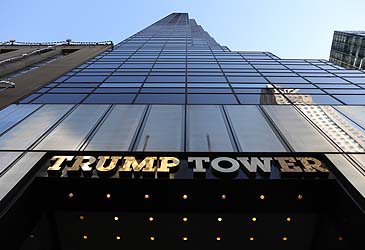
Trump reported large donations to charity in 2018 and 2019, helping reduce the amount he owed on millions of dollars in income he reported in those years.
But Trump posted a massive $USD4.8 million ($7 million) adjusted loss in 2020, a year, which alone wiped out his federal income tax obligation.
Trump paid $0 in federal income taxes in 2020.
The Joint Committee on Taxation raised questions about the accuracy of some enormous charitable deductions Trump claimed in previous years' tax returns, including large and unsubstantiated cash gifts.
Trump also claimed a $USD21.1 million ($30.9 million) deduction in 2015 for donating 158 acres of his 212-acre property called Seven Springs in North Castle, New York.
That donation, which was made to a land trust, is a focus of the Manhattan district attorney's criminal investigation of the Trump Organisation's finances.
Trump's own 2017 tax law appears to have reduced the amount he was able to deduct from tax bill
Trump claimed that the 2017 Republican tax plan he championed and signed would cost him and his family "a fortune".
It's not clear that it did, but it does appear to have limited the amount that he could claim in one part of his complex tax return.
The 2017 tax law capped the state and local tax deduction, known as SALT, at $USD10,000 ($14,671) a year.
In previous years, tax filers were allowed to deduct more of their SALT payments.
READ MORE: Elon Musk lashes Donald Trump over calls to terminate the constitution
Although the law was passed in 2017, it didn't apply until the 2018 tax year.
In 2018, Trump listed $USD10.5 million ($15.5 million) in state and local taxes, but could deduct just $USD10,000 ($14,671) of that from his taxes.
In 2019, Trump paid $USD8.4 million ($12.3 million) in SALT but was capped at $USD10,000 ($14,671).
And in 2020, Trump said he paid $USD8.5 million ($12.4 million) in SALT but claimed the maximum allowable $USD10,000 ($14,671).
By comparison, in 2016 and 2017, Trump was able to deduct significantly more from state and local taxes.
For example, in 2016 and 2017, he deducted $USD5.2 million ($7.63 million) each year in SALT payments.
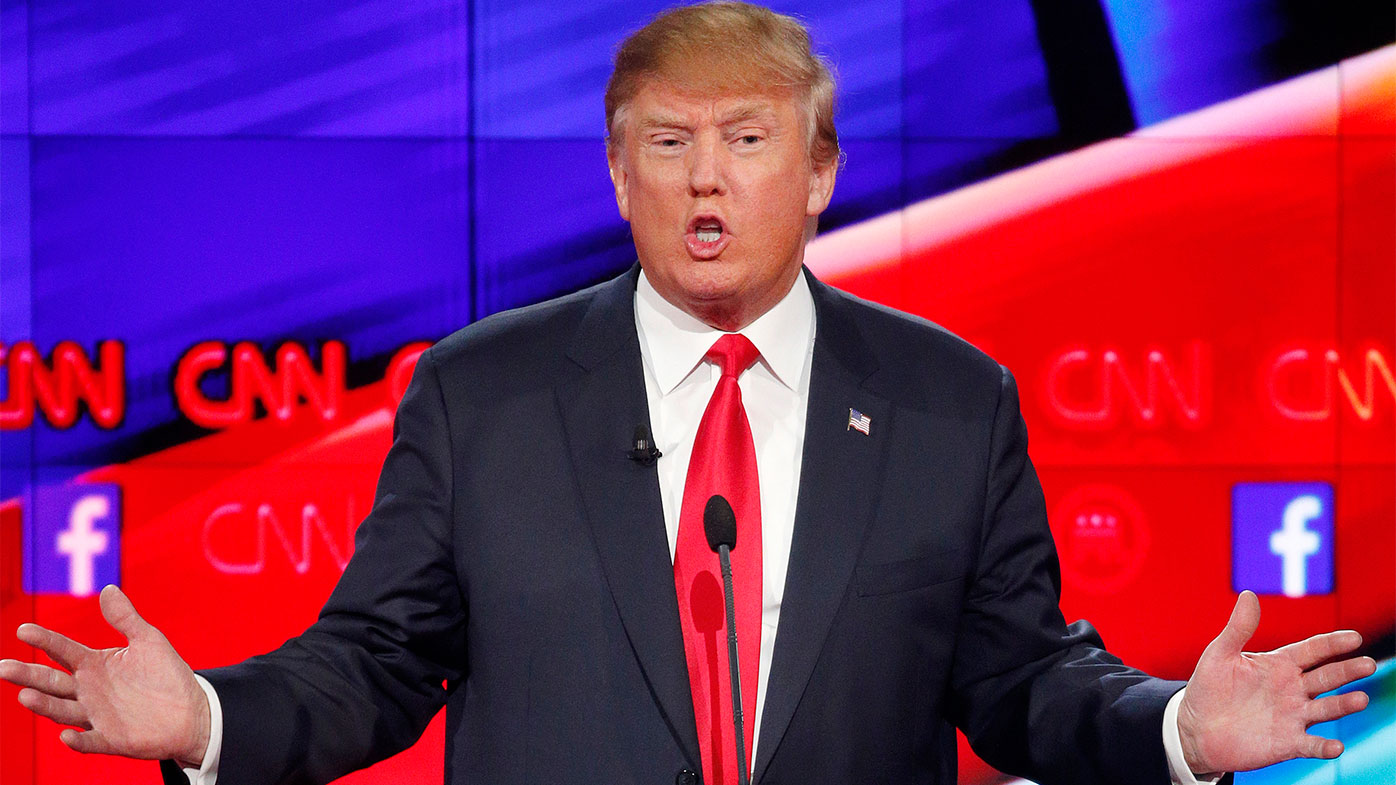
Some Democrats criticized the 2017 tax law's SALT cap for taking aim at residents in the Northeast and the West who have some of the highest property taxes in the country.
The Tax Foundation found that property tax deductions capped in 2017 had previously accounted for about a third of all state and local tax deductions.
But Trump defended the provision, saying the cap was necessary even if it would hurt his own finances.
It's not clear how much the SALT cap hurt Trump, however.
Although that particular deduction was capped, Trump claimed many other deductions that limited the amount of federal income taxes he had to pay.
Presidential audits
The Ways and Means Committee, which is responsible for overseeing the IRS and writing tax policy, requested the returns under the authority of section 6103 of the US tax code.
Their report focused primarily on whether Trump's tax returns during his time in office were properly audited under the IRS' mandatory audit program for US presidents.
The committee found that the IRS opened only one "mandatory" audit during Trump's term, for his 2016 tax return.
And that didn't take place until the fall of 2019, after Chairman Richard Neal, a Massachusetts Democrat, first sent a letter asking the IRS for Trump's returns and tax information.
READ MORE: Trump hosted Holocaust denier during visit with Kanye
The report characterises the presidential audit program as "dormant".
"The research that was done as it relates to the mandatory audit program was nonexistent," Neal said last week following the committee vote.
Republicans on the committee argued that Democrats acknowledged it was "not necessary to publicly release the private tax information to change requirements on the presidential audit program".
A Republican dissent issued Friday warned that, "Democrats' dangerous precedent will lead the American public to demand other people's tax returns to be released".
Last week, the House passed a bill that would reform the presidential audit process in a largely symbolic vote before Republicans take the majority in the new Congress.
The legislation is not expected to be taken up by the Senate before the new Congress is sworn in.
from 9News https://ift.tt/TVJMCLD
via IFTTT
Comments
Post a Comment